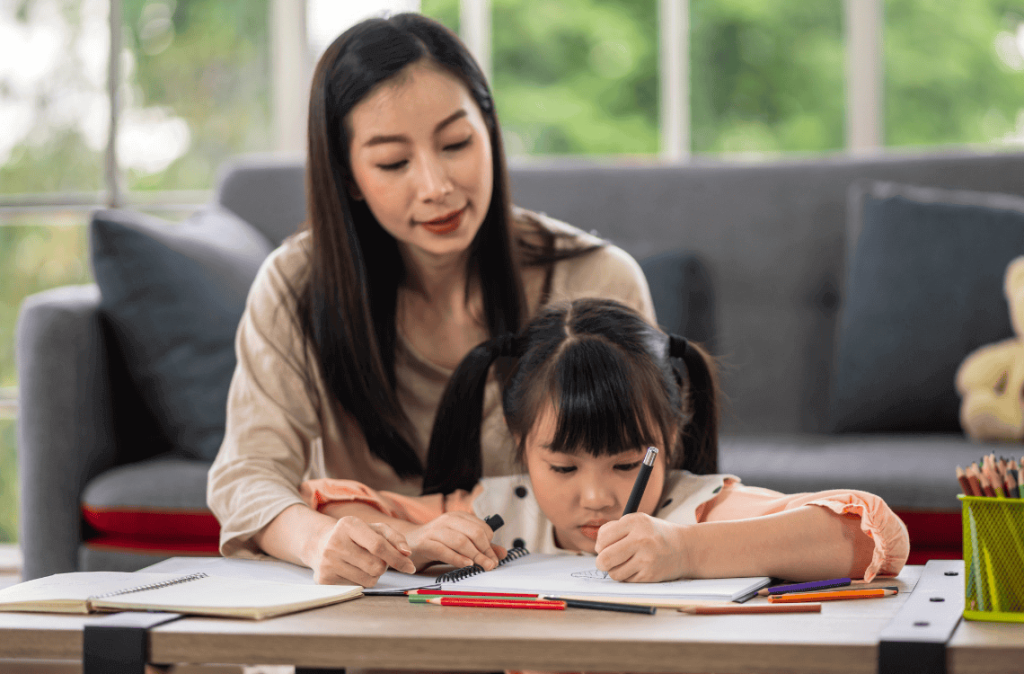Our child’s name has already been registered.
The letter came; the placement was confirmed: Sekolah Kebangsaan, standard one next year.
It was supposed to be a moment of pride and excitement. But lately, that feeling has been replaced with something else: worry.
In light of recent events, many of us have started to look at schooling differently.
Conversations in parent groups and playdates have shifted from “Which school did you get?” to “Should we all just homeschool?”
And as we scroll through news headlines and parent forums, it’s clear we’re not the only ones thinking this way.
Many parents across Malaysia are quietly exploring other options, including homeschooling, as a way to feel more in control of their children’s safety and environment.
The Shifting Conversation Around School
More parents today are questioning not just where their children learn, but how.
Some choose private or international schools, not for prestige, but to have more control over the kind of environment their child grows up in, including the friends they make and the supervision they receive.
The smaller class sizes and structured surroundings offer reassurance in uncertain times.
But there’s another group of parents who believe public schools, despite their challenges, build character.
They’ve seen their children develop empathy, adaptability, and a broader understanding of community by studying alongside peers from diverse backgrounds.
And then there are parents who find themselves somewhere in between, curious about homeschooling.
Not necessarily because they reject the school system, but because they want to explore every possible way to keep their children safe, supported, and emotionally healthy.
What Homeschooling Actually Means
In simple terms, homeschooling means teaching your child at home instead of sending them to a formal school.
It’s legal in Malaysia, but parents must apply for an exemption from the Ministry of Education (MOE) under the Education Act 1996.
Once approved, parents can choose to follow the national syllabus (KSSR/KSSM) and international programmes like Cambridge IGCSE.
Many parents now connect through Facebook groups, share lesson plans, or even join group classes to help children socialise and learn together.
Why Parents Are Considering It
Every family’s reasons differ, but some patterns are becoming clear:
-
Safety and security: In times when news about school incidents keeps surfacing, home can feel like the safest learning space.
-
Personalised education: Homeschooling allows lessons to move at a child’s pace, whether they need more time in certain areas or are ready to move ahead.
-
Emotional wellbeing: Children who struggle with anxiety, bullying, or sensory overload often thrive in calmer, more familiar settings.
-
Family and faith values: Parents have the freedom to integrate moral, cultural, or religious lessons into everyday learning.
-
Information control: In a world where exposure to media, peer influence, and online content starts younger than ever, homeschooling helps filter what children encounter.
The Challenges to Keep in Mind
According to the Ministry of Education (MOE), homeschooling is a privilege, not a right.
It is mainly granted to children with chronic health conditions or special circumstances that prevent regular school attendance.
Parents must apply for exemption from compulsory education under Subsection 29A(2) of the Education Act 1996.
The process includes submitting an application through the State Education Department (Jabatan Pendidikan Negeri), which is then reviewed by the Director-General of Education and referred to the Minister of Education for final approval.
If permission is granted, parents are required to:
-
Use a recognised syllabus (national or international) and ensure consistent learning.
-
Monitor and report their child’s educational progress to the relevant authorities.
-
Allow follow-up visits or evaluations if requested by the MOE.
Failure to meet these standards can lead to the revocation of approval, requiring the child to return to formal schooling.
For many parents, the biggest challenge won’t be about teaching itself; it’s navigating this regulatory process, maintaining documentation, and ensuring the home environment meets educational expectations.
More information on homeschooling application in Malaysia can be found here: https://www.moe.gov.my/home-schooling
Protecting What Matters Most
At its heart, this isn’t about rejecting schools or criticising teachers; it’s about protecting what matters most.
Every parent wants the same thing: for their children to feel safe, happy, and inspired to learn.
Whether that happens in a public classroom, a private school, or at the kitchen table surrounded by colouring books and curiosity, the goal remains the same.
Homeschooling might not be for everyone, but exploring it doesn’t mean turning away from education.
Disclaimer: The information provided in this article is for informational purposes only and should not be considered as medical advice from Motherhood. For any health-related concerns, it is advisable to consult with a qualified healthcare professional or medical practitioner.
For more insightful stories and fun recipes, stay tuned to Motherhood Story!
